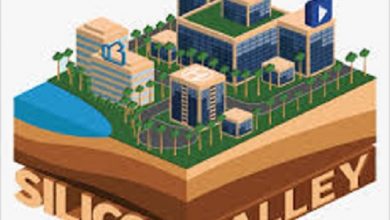Hard Skills definition difference with soft skills and importance and How to use in recruitment
Hard Skills
The definition of Hard Skills are all the technical skills that an employee has, being a concept used for the selection of new employees or even for development programs. In this article we will impart you the definition of hard skills.
The terms soft and hard skills have certainly come to you whether you work in HR or people management.
These are extremely important terms for selecting new employees and drawing up a professional development plan for those who already make up the company’s staff.
In short, hard skills are the individual’s technical skills , what qualifies him for the job.
Soft skills are the subjective aspects of the individual, such as their behavior and personality.
In this article, we will focus on the first one, but we will help you to differentiate them and apply them in practice in your company .
Read on and discover the importance of hard skills for the company and how to develop them with employees.
More about definition of hard skills?
The word skill comes from English and means skill . Hard skills, on the other hand, is a slightly more specific concept, representing the skills and technical skills of a professional.
This type of skill can be learned in classrooms and be easily quantified and proven, after all, all you need to do is present a diploma to be able to perform your role.
Typically, these skills are described on the resume and were the decisive factor in the selection and hiring of candidates for the vacancy . However, today, there is a more holistic view of the individual . Which brings us to the next concept.
What are soft skills?
Soft skills are closely linked to the individual’s personal and intangible abilities and cannot be proven through diplomas or certificates , but through their daily attitudes.
Thus, evaluating this type of skill in an interview is very complex , however, it is very important to consider the fit between the individual and the company’s organizational culture .
Not only, with the paradigm shifts in people management, the psychosocial aspect of the individual is increasingly taken into account.
After all, it doesn’t matter if the professional is technically qualified, if he can’t fit in with the team and work together because he can’t communicate well, for example.
In this text, we will talk more about the technical skills of employees, however, we also want to make clear the importance of soft skills in the work environment.
Differences between soft and hard skills
Hard skills are those skills developed thanks to experience , whether practical or theoretical and, almost always, they are accompanied by a supporting document.
Another way to certify these skills is with results , after all, today there are many professionals who work in areas completely unrelated to those of their training area, but with a good repertoire in the segment in which they work.
For example, someone who works in the marketing area, but with a degree in Production Engineering, can prove their proficiency from the results obtained.
Of course, courses in the expected area are also very welcome and should indeed be considered.
However, it is also important to keep an eye on new teaching trends and professional models.
Soft skills are personal and relational skills, as they are closely linked to the way an individual interacts and relates to other people.
As you have already read, they have a very empirical content and cannot be proven in documents, as they are socio-behavioral skills that are not measurable .
However, its presence can be proven in a job interview or in everyday life by evaluating the interaction with the team.
Examples of soft and hard skills
In order to further anchor these concepts, it is important to understand why public speaking is a hard skill and communication is a socio-behavioral skill .
See some examples below for each skill niche.
Hard Skills:
- Language proficiency;
- Resourcefulness in Excel;
- People management ;
- Project management;
- Editing images or videos;
- Operation of machines and/or systems;
- Domain of computer languages;
- Advertising writing skills;
- Engineering;
- Right.
Soft Skills:
- Communication;
- Creativity (creative thinking);
- Critical thinking;
- Empathy;
- Team work;
- Proactivity;
- Emotional intelligence ;
- Leadership;
- Motivation;
- Patience;
- Time management.
Is the difference between these concepts clear? Now, let’s delve deeper into the importance of hard skills for your business.
Why are hard skills important?
To begin with, an obvious but necessary argument: many positions require technical knowledge in order to perform the activities of the function.
Hard skills are even made explicit in the advertisement of the vacancy, serving as a filter before the individual applies for the vacancy.
Even headhunters start the selection by filtering these skills, such as ideal backgrounds, courses and expected skills.
For example, when a job in the marketing department needs someone with paid media management skills and the job is made available with the title of Marketing Analyst, it becomes a wide spread.
Developing the right profile to fill the vacancy is very important as it directs it to the right audience, reducing the efforts of the selection team to find the ideal candidate.
Therefore, it is important to assess the specific needs of the department, what skills the individual should have.
Before even getting to the topic of hard skills in recruitment and selection, we can already see its importance for this process. However, the impact on internal organization cannot be ignored.
By defining the skills needed for each role, it is possible to identify where the company can act to close possible knowledge gaps that may exist in the teams.
In this way, the company can achieve greater productivity and service quality, reduces turnover and also allows finding talents that are already within the company.
Remember that hard skills are fundamental, but soft skills cannot be underestimated.
A person is not just their courses and diploma , there is a whole human and social facet and it is with them that the other employees live.
Why should hard skills be identified before recruitment?
The first point worth mentioning here is that identifying the skills needed for a vacancy before starting the recruitment process helps guide the rest of the process.
These are basic skills for the company at that moment, after all, publicizing the vacancy as just as “HR analyst”, “urban architect” or even “marketing coordinator” leaves everything very vague.
How will the person complement the team’s work? How will the role help the company with its short-term and long-term goals?
These questions are essential to ensure a really strategic hiring and a professional who truly integrates into their roles in an exemplary way.
Of course, this integration also depends on a number of soft skills such as leadership or patience . Whatever they are, they also need to be mapped .
Therefore, it is possible to prepare a description of open opportunities that filter candidates even before submitting the resume.
How to use hard skills in recruitment and selection?
In the recruitment and selection process itself, knowledge about the hard skills needed for the vacancy are ideas to create an objective and clear description .
As we mentioned in the previous topic, it is extremely important to attract professionals with the correct profile and also to reduce the number of proposals, since the description itself is quite clear about what is needed to apply for the vacancy.
This also makes it easier for HR analysts to look at multiple CVs, but this can also be evaluated during the interview.
How to assess hard skills during the interview?
What would be a problem that someone who has all the hard skills needed for the job would be able to solve?
Here, offering a specific scenario for this candidate can help to elucidate several skills: ability to solve problems, deal with pressure, use your knowledge to achieve a goal and much more.
It will depend more on how the problem is done.
A good practice is to design a test situation with a real one that has already happened or is still happening in the company.
It’s no use elaborating extremely complex problems that few people would know how to answer, after all, that doesn’t happen in the company.
Thus, it is possible to assess hard skills accurately for the needs of the company and still have an idea about the cultural fit of this candidate.
How important are hard skills and soft skills for the company?
It is in the company’s interest to understand and manage the skills of its employees well, whether hard or soft skills.
This ranges from the selection process , as you have already seen, to the way in which institutional continuing education programs will take place.
For example, when carrying out this survey, you identified that marketing analysts do not have great knowledge in performing offline actions.
Given this, HR can prepare training to train them or, at least, teach them the basis for this process.
Thus, having a breakdown of all the technical and behavioral qualifications for the vacancy helps to improve the workforce that is already in the company and better delineate those who will be hired.
Bad hires, both in terms of the individual’s skills and personality, are costly for the company, as they have to go through the entire process of firing, hiring, training and onboarding.
In addition, balanced hires, that is, those that consider soft and hard skills, tend to improve the organizational climate , as the employee is able to carry out his activities without bottlenecks and get along better with his peers.
What are the main hard skills for the job market?
You saw some examples of hard skills just now and now, you will discover the main skills sought in the job market.
Keep in mind that this may vary depending on the area the professional is in and even the company offering the vacancy.
Check out below the hard skills most sought after by companies and also some that are a trend for the coming years:
1-Management
More and more companies need people who have management skills , whether of projects or people.
This type of profile is essential for the creation of teams that are increasingly self-managing and capable of taking on greater and greater responsibilities.
2-Schedule
Today, programming is far from being linked only to the development of digital solutions. It is present within marketing, team management and even HR.
Understanding, even if basically, how the language of computers works can be a big difference.
3-multimedia editing
Using multimedia media (images, videos and audios) to communicate ideas is simply necessary nowadays.
Therefore, skills to handle this type of content by image and video editors are also great differentials.
Anyone who thinks this is relevant only for external communications, such as marketing, is wrong. It is also important to communicate with the internal audience .
Therefore, multimedia editing is a very valuable skill.
4-UX Design
UX Design stands for User eXperience (UX ) design. It is the process by which systems , operations and communications are shaped to provide a better interaction of a person with the product or service.
With better experiences, the more satisfied customers are and the results are greater. Therefore, knowing how to modulate well the points of contact between the target audience and the business is essential for companies in the 21st century.
5-Cloud computing
Another point that is a real fever in companies is the adoption of technologies in the SaaS model (software as a service) , in which you don’t buy a program but pay a monthly fee to have access to a platform.
That is, everything is in the cloud and you gain access to the service or product.
This happens for several departments: finance, marketing and even HR, managing the workday in a practical and automated way.
6-Sales
The sales area is one that always seeks to reinvent itself, after all, the consumer is always changing, especially in the digital age.
Therefore, being always studying the news in this area is essential to always remain relevant to companies.
These are just a few examples of hard skills that companies are looking for and in increasing demand.
Other relevant skills you need to look out for:
- Artificial intelligence;
- Blockchain;
- Data analysis;
- Oratory;
- Writing skills.
Regardless of this list, it is important to research in depth what are the main skills for the area of interest in order to understand what the next steps will be for the market as a whole.




